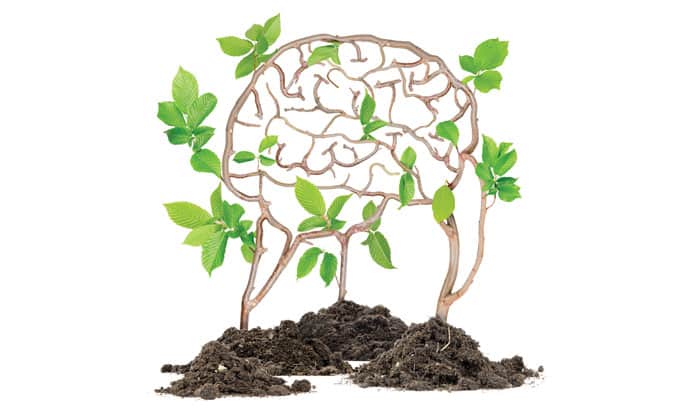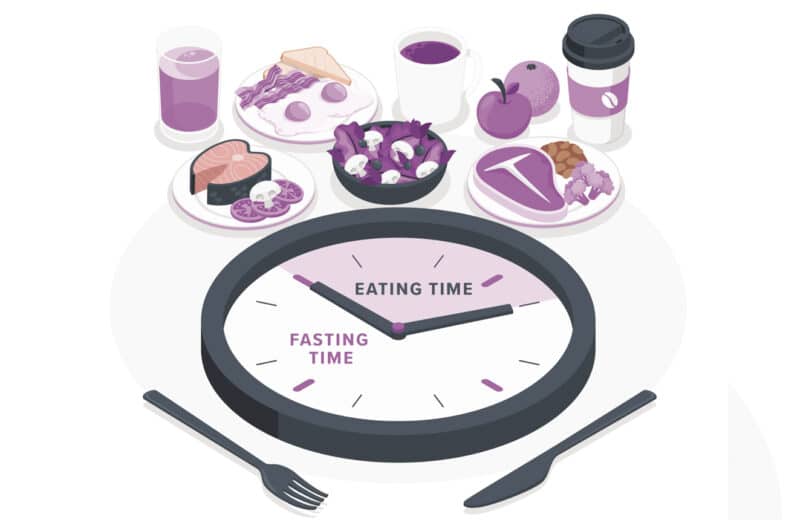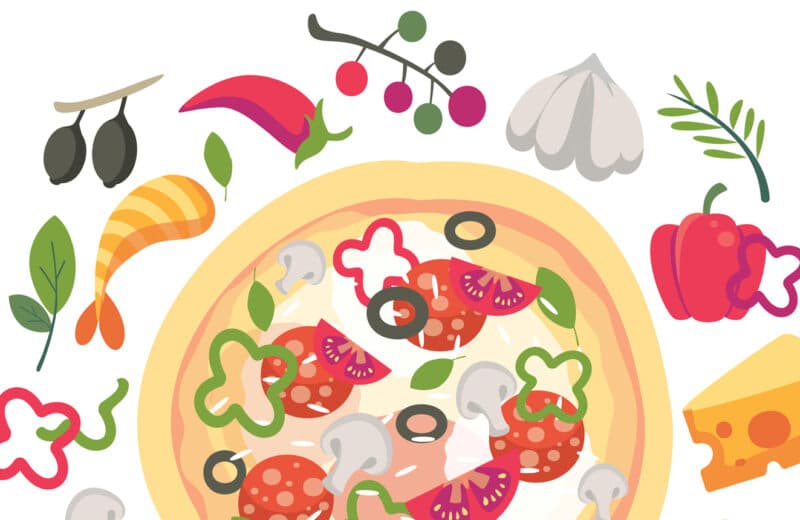New eating approach can help your brain
Your brain health is closely linked to what you eat. New research looking into diet and dementia reveals that your daily food choices can play a powerful role in preventing cognitive decline and dementia, the sixth leading cause of death in the United States.
Two plant-based diets have shown promise in helping to combat cognitive decline: the Mediterranean Diet and the blood-pressure-lowering DASH Diet (Dietary Approaches to Stop Hypertension). Researchers at Rush University Medical Center in Chicago combined these two diets into a new hybrid diet—the Mediterranean-DASH Intervention for Neurodegenerative Delay (MIND), which specifically hones in on dietary components and servings linked to neuroprotection and dementia prevention.
Eating for Brain Health
“Food components are important for brain health,” explains Martha Clare Morris, PhD, ScD, professor of epidemiology at Rush University Medical Center. Morris is spearheading research on the MIND dietary approach and its impact on the prevention of cognitive decline, dementia and Alzheimer’s disease.
“Increasing consumption of berries and vegetables (especially leafy greens) and decreasing saturated fat from cheese and red meat has been shown to significantly slow cognitive decline and decrease the risk for Alzheimer’s disease,” Morris explains.
Morris and her team published two studies in Alzheimer’s & Dementia that found that when participants of the Rush Memory and Aging Project (MAP) followed these dietary patterns, the MIND diet significantly slowed cognitive decline with age. A food-frequency questionnaire, added to the MAP study from 2004 to February 2013, showed that even moderate adherence to the MIND diet showed potential in decreasing Alzheimer’s risk. The study showed that moderate adherence to the MIND diet lowered the risk of Alzheimer’s by 35 percent, and high adherence lowered the risk by 53 percent.
What Is the MIND Diet?
The MIND diet details 15 dietary components, including 10 “brain healthy food groups”—green leafy vegetables, other vegetables, nuts, berries, beans, whole grains, fish, poultry, olive oil and wine—as well as five unhealthy food groups to avoid or eat sparingly: red meat, butter/stick margarine, cheese, pastries/sweets and fried/fast food. The diet suggests at least three servings of whole grains, a salad and another vegetable every day, with poultry and berries at least twice a week and fish at least once a week.
“The MIND diet blends two proven, plant-based, healthy diets and is backed by research—it’s been shown to keep the aging brain 7.5 years younger and cut the risk of Alzheimer’s disease in half. It’s easy to follow and effective, even without rigidly adhering to it,” says Maggie Moon, MS, RDN, a Los Angeles-based dietitian and author of the book, The MIND Diet, due out in November from Ulysses Press.
The MIND diet is not as rigid as the other plant-based plans, Moon says. “The MIND diet is less demanding than either the Mediterranean or DASH diets as it specifies fewer required servings of fish, grains and vegetables and has no emphasis on dairy or limits on total fat. Plus there’s no general fruit recommendation other than it hones in on berries, such as blueberries, pomegranates and raspberries,” she says.
The MIND diet was created with specific levels and types of foods to optimize brain health, which differs from the Mediterranean diet and the DASH diet. Those diets focus on heart health, which in turn may impact brain health.
Research shows that protection for the brain requires different foods and nutrients, thus the MIND diet modifies current dietary approaches to better protect against brain diseases. “For example, the MIND diet incorporates foods with polyphenolic compounds, such as berries, that have been shown through both animal models and human studies to protect the brain against memory loss,” Morris explains.
Although this is just a start in the prevention of cognitive decline, dementia and Alzheimer’s, it is proving to be a great step in isolating dietary components to combat the growing burden of cognitive decline in aging populations.
How do you score on the MIND diet?
MIND Components Amount Max Score
Whole grains > 3/day 1
Green leafy vegetables > 6/week 1
Other vegetables > 1/day 1
Berries > 2/week 1
Fish > 1/week 1
Poultry > 2/week 1
Beans > 3/week 1
Nuts > 5/week 1
Alcohol/wine 1/day 1
Olive oil = primary oil 1
Red meat < 4/week 1
Fast/fried food < 1/week 1
Butter, margarine < 1 Tbsp/day 1
Cheese < 1/week 1
Pastries, sweets < 5/week 1
_________________________________________
Total MIND Score 15













